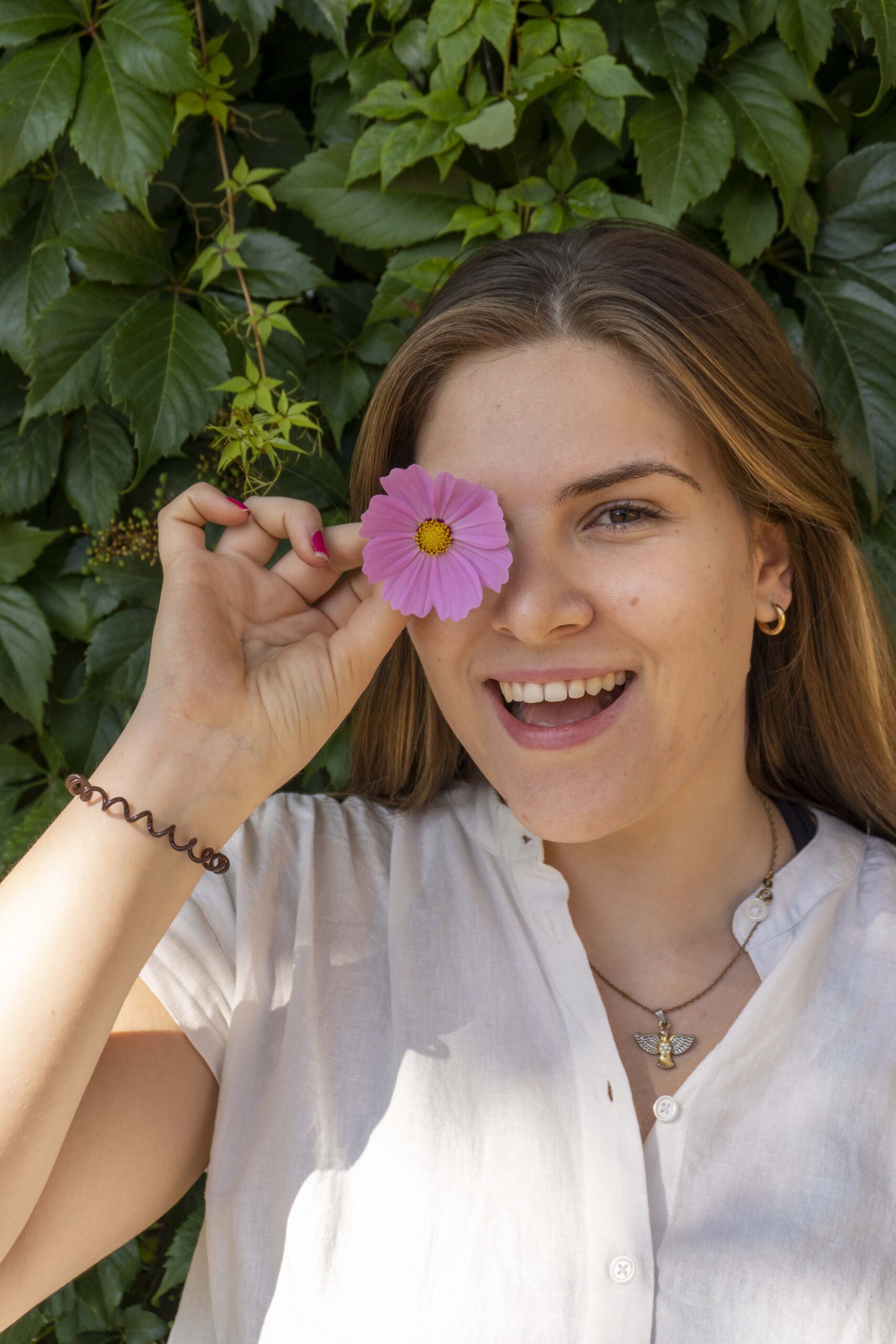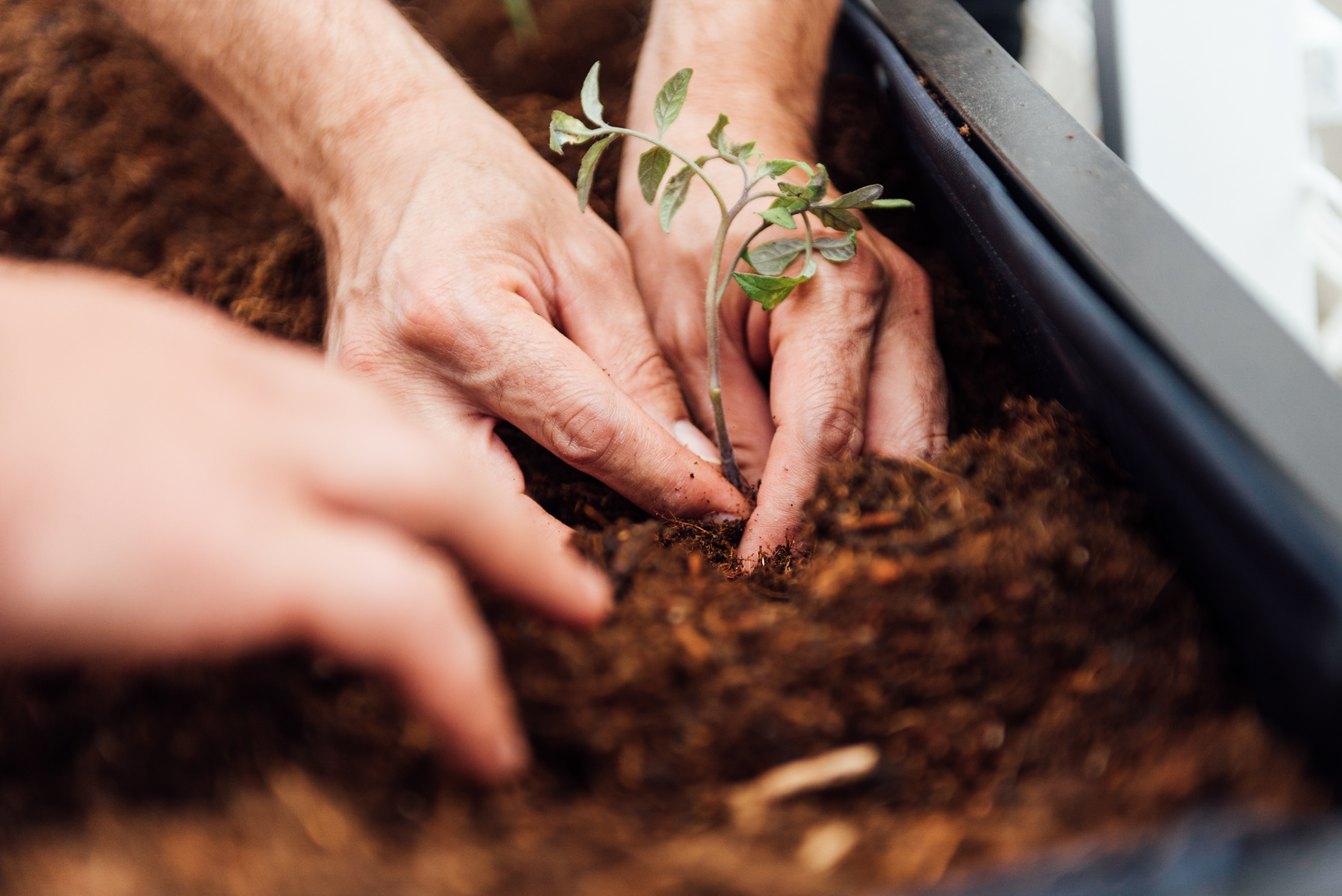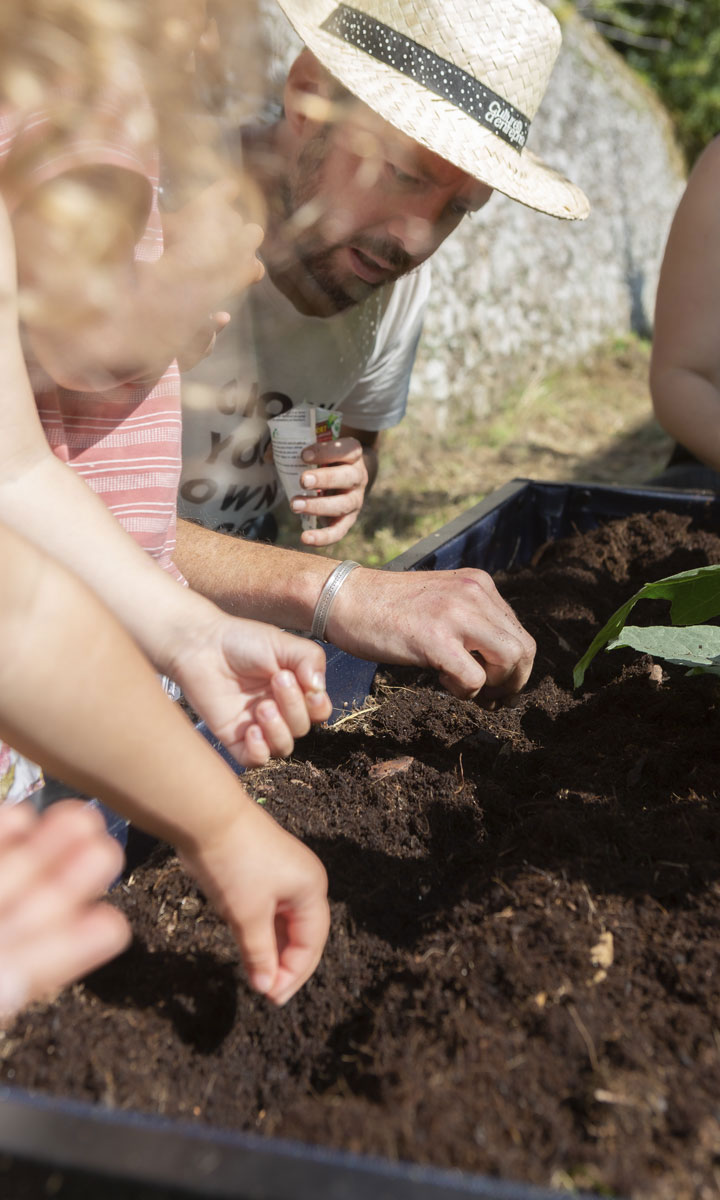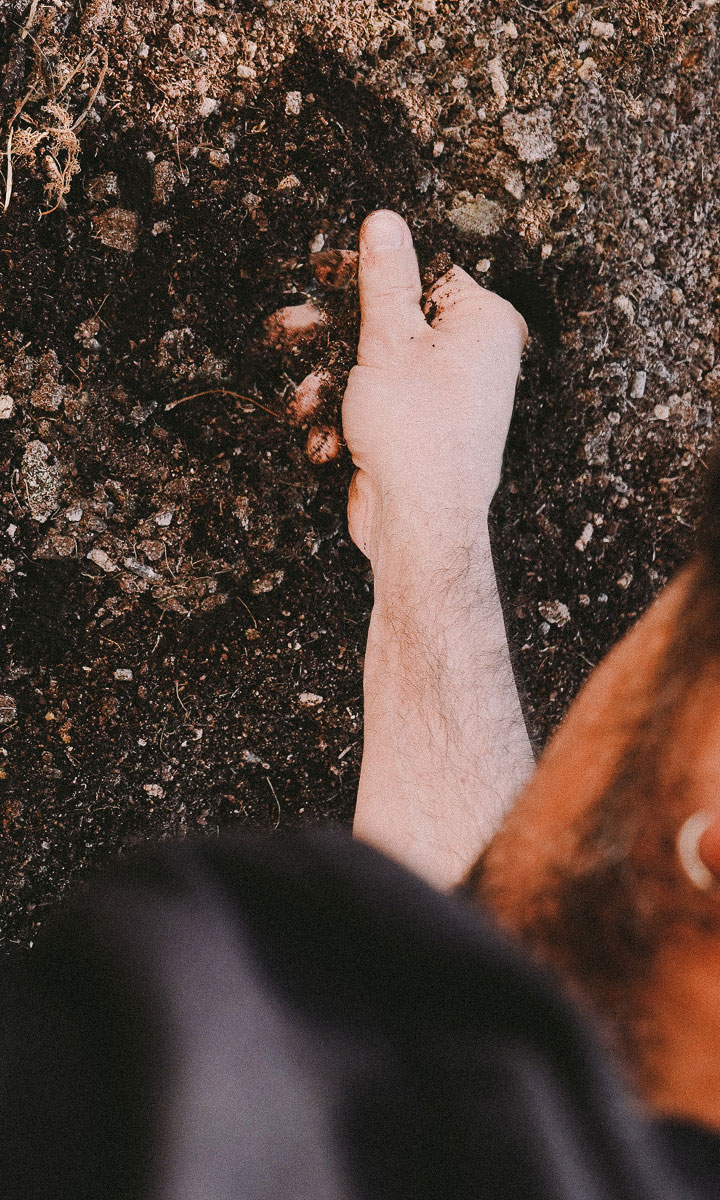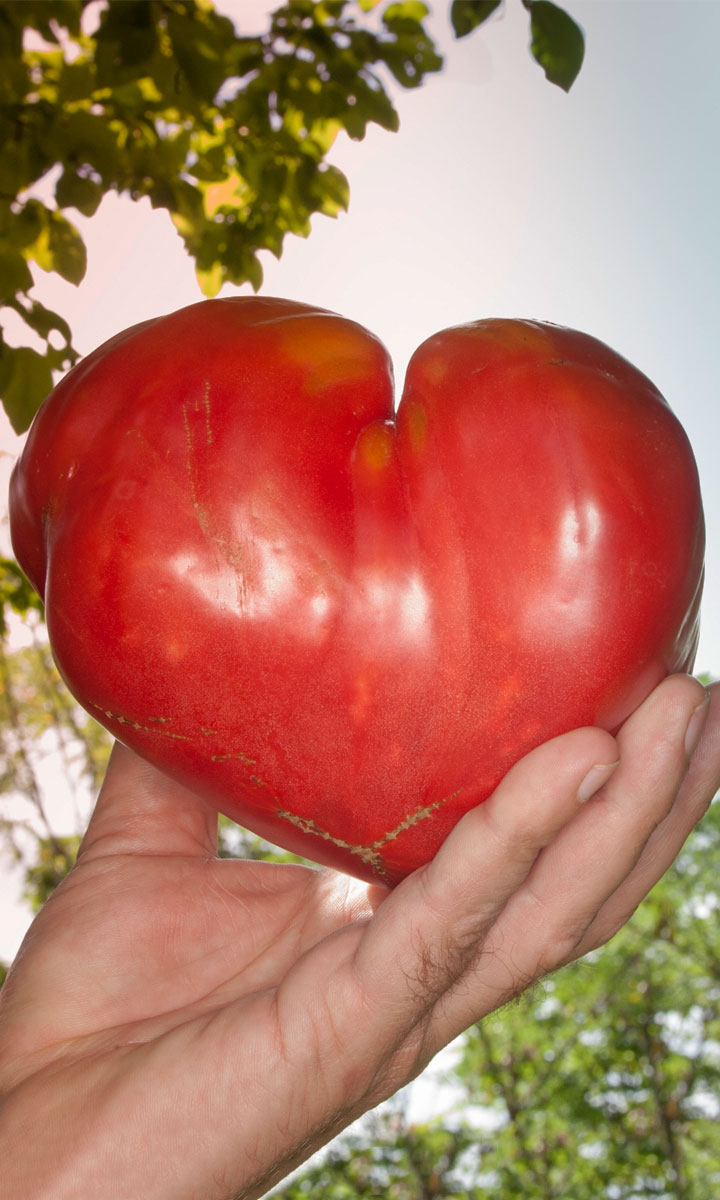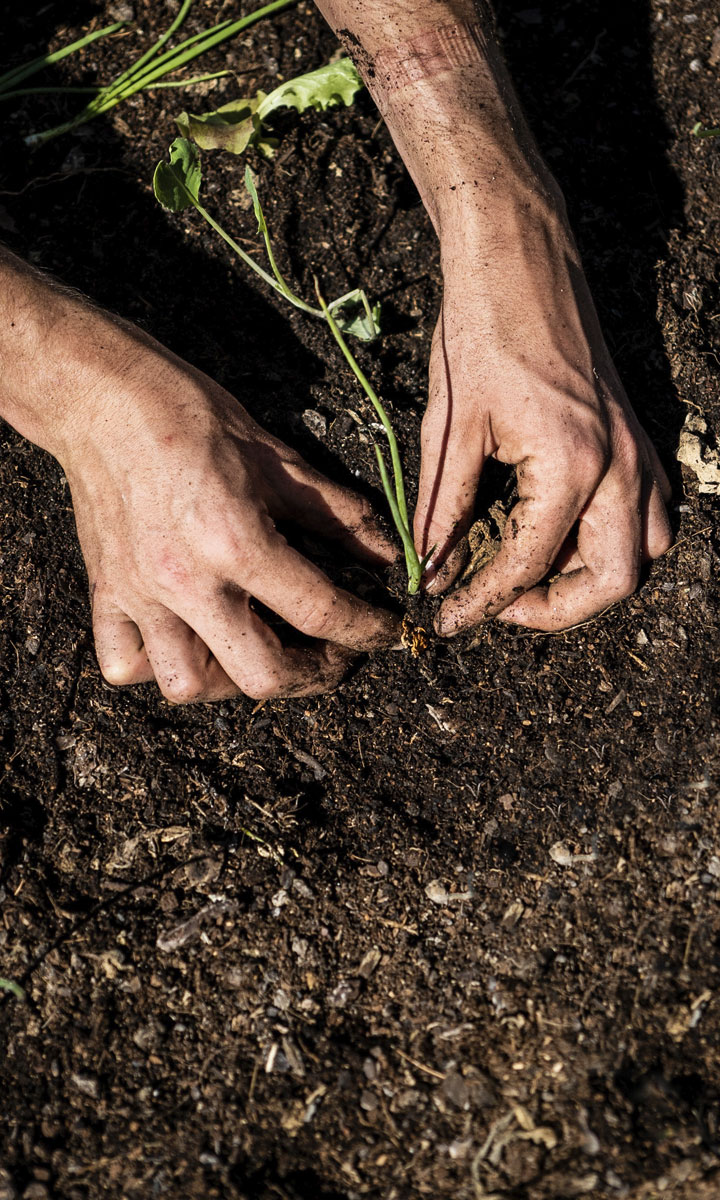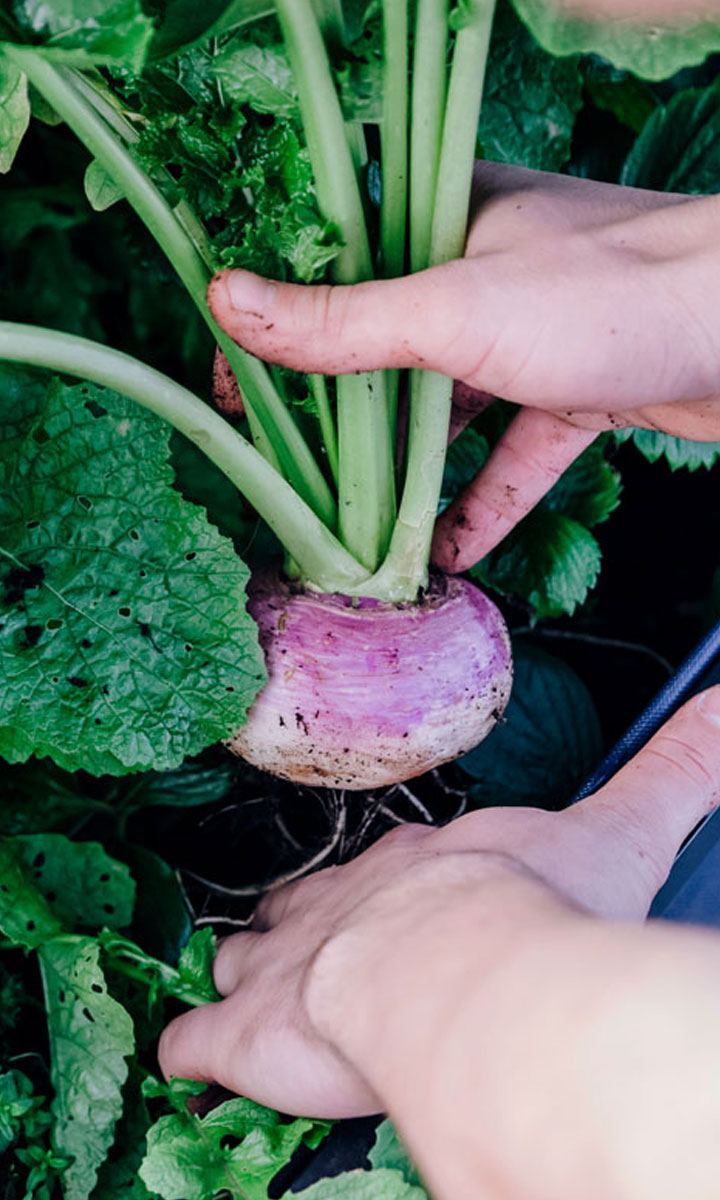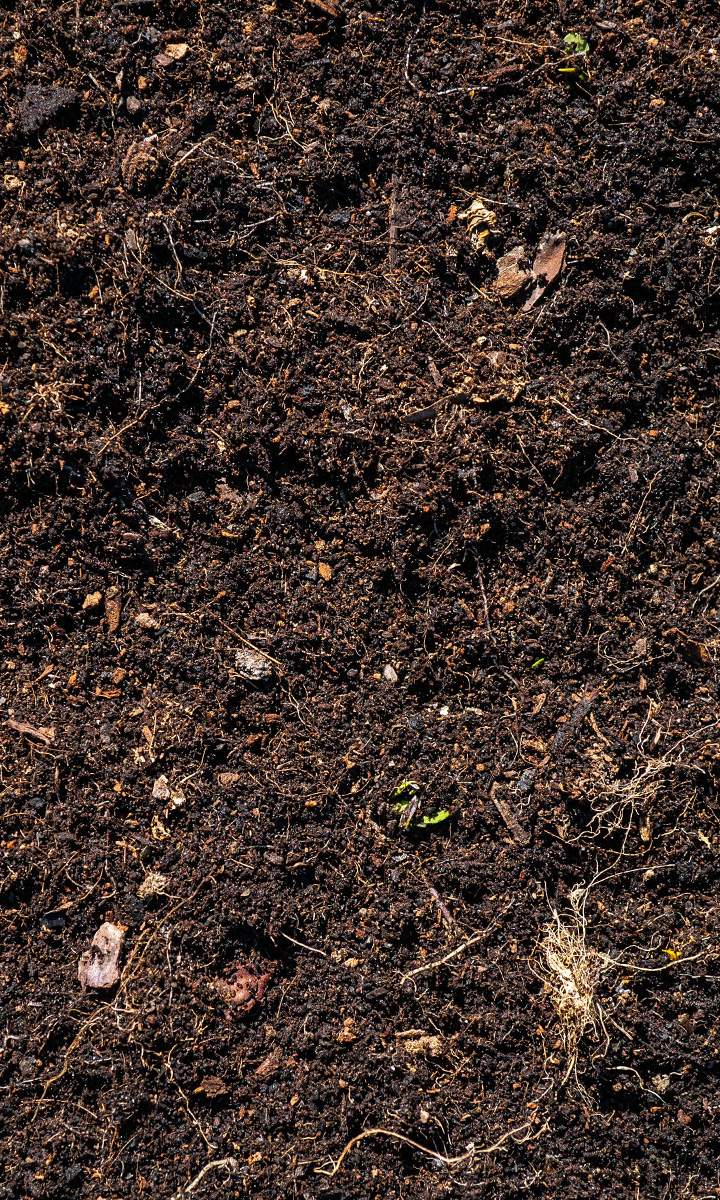Nourish your soil for a better, healthier garden.

Henrique Dias
Soil (substrate, earth, or potting soil) is a medium that allows the survival and nourishment of living organisms. This medium can also be water, which is used hydroponics, or even air, but at Noocity, we prefer to keep our feet on the ground!
Living, fertile soil requires a delicate ecosystem balance, a diverse and interactive habitat that keeps it productive and able to nourish plants as well as protect them from pests and diseases. For Dr. Elaine Ingham, founder of Soil Food-Web Inc., the power of a soil rich in organic matter, with good structural and biological characteristics, is unparalleled. Every bacterium, fungus, insect and animal plays a role in this habitat. So why reinvent the wheel when nature has already created sucha balanced, functional, foolproof system?
Nourishing your soil is a must.
This means that feeding your soil is a must — as important as other practices such as crop rotation and companion gardening — if you want healthy, abundant crops.
In our Noocity Growbeds, we use a substrate instead of earth, but the idea remains the same. Our “family recipe” is a 100% natural substrate made with coconut fiber(for crop subsistence) combined with an organic fertilizer in granules which provides macronutrients commonly known as “NPK”for nitrogen, phosphorus, and potassium. In the community gardens that we manage, we combine fertilizers with natural compost, generated on site by our vermicomposters, thus reusing excess bio-waste and returning everything we take back to the earth.
Feed the soil with each new season
Nourish your soil is a constant task to make sure that your garden stays productive all year. As plants grow, the nutrients in the substrate are consumed and need to be replenished. Thus, we recommend fertilizing with every new season when you clean your garden, and, if needed, up to a week before starting the next crop cycle.
We love granular, slow-release fertilizers that are made from animal products and that free us from the responsibility of having to constantly reapply it. That’s the type of fertilizer that we provide in our Vegetable Garden Kit as well as in the Maintenance Pack available on our site. Liquid fertilizers are also an option. They are easy to use (just add a dose of fertilizer into the water tank through the supply pipe) but require recurrent application, since the nutrients are consumed more quickly.
Adding organic residues, like natural compost, or organic fertilizers to your soil makes it possible to “build” a soil that is more resistant to erosion, absorbs water better and supports the growth of microorganisms. These not only improve soil consistency, aeration and absorption, but also break downorganic and mineral matter, making the nutrients needed for plant growth easier to absorb.
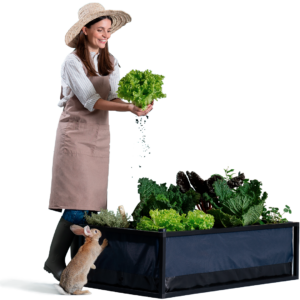
Maintenance Pack
throughout all year with our organic
fertilizer and a 100% natural substrate.
